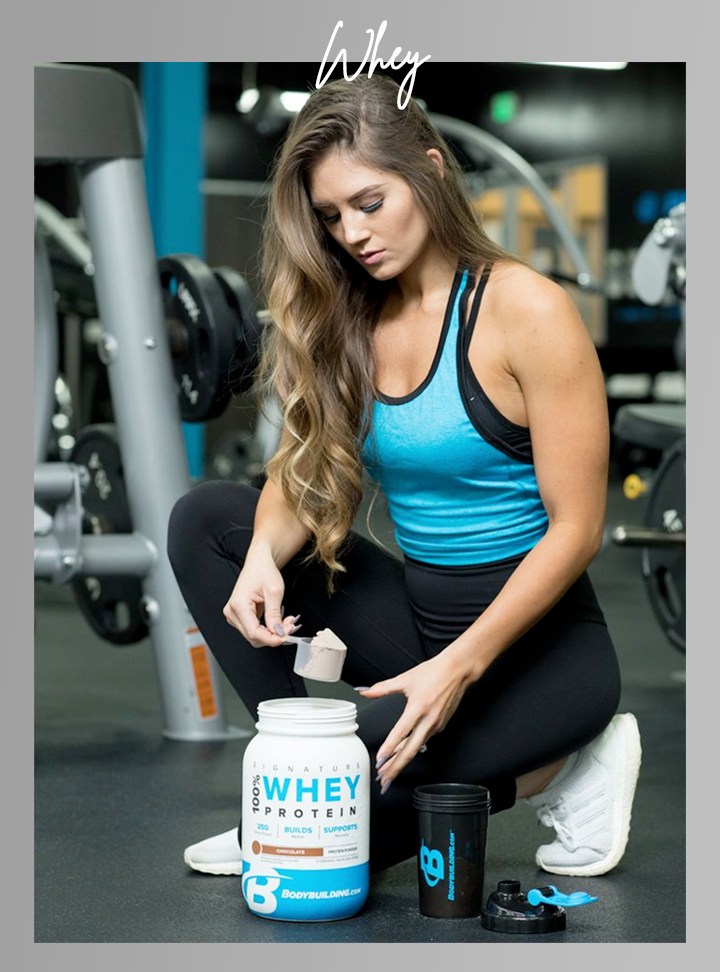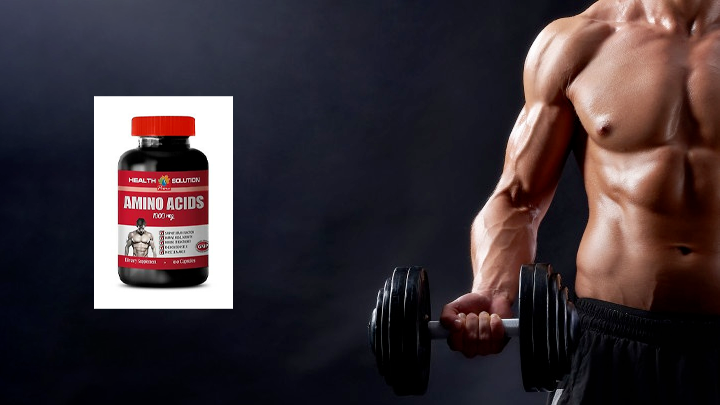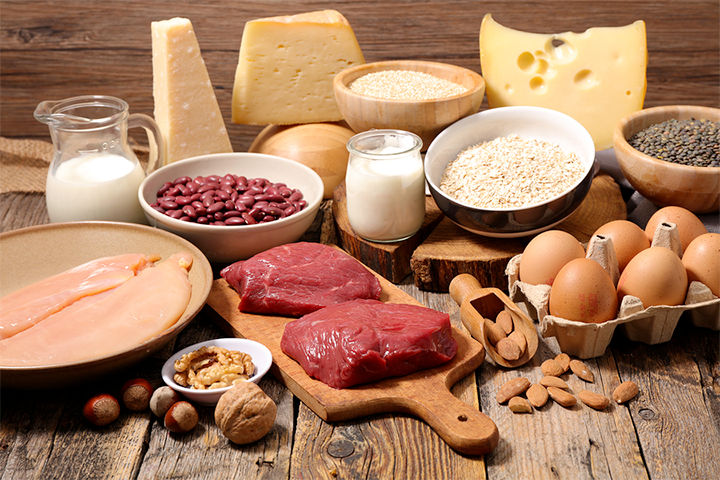After intense resistance training, the muscles and connective tissues of athletes are subdued to intense levels of damage and stress. Even so, it’s an unavoidable part of the process of strength development and hypertrophy.
Scientists have documented well the benefits of post-workout supplements. The activated skeletal muscle with its significant microtrauma and tissue breakdown state are in need of repair. Thus, providing muscles with the necessary protein supplements after exercise has a great impact on the accumulation of skeletal muscle protein, subsequently leading to proper tissue repair and growth. Choosing the right nutrients precedes your choice of the perfect slim fit tights, shoes or the right workout bottle.
What Supplements Should I Take Post-Workout?
Protein Powders & Pills
The range of protein supplements post workoutThe range of protein supplements post workout differing in both source and content is extensive. Still, most of them are whey varieties. differing in both source and content is extensive. Still, most of them are whey varieties. In addition, other protein powder supplements include casein derivatives, soy, egg white and beef protein.

Casein
Casein, the main protein found in milk, has been proven to be a superior source because it releases the amino acids (AAs) at a slower rate than whey, thus keeps a steady level of AAs in the bloodstream for a longer period of time. Consequently, protein manufacturers are trying to provide their customers with both fast and slow-acting proteins by blending whey and casein.
Whey
The liquid that’s left upon removal of coagulated casein curd from the milk is how whey is made. It’s been known for the past three millennia, and over time it has become a highly marketable health product. It can be complexed with other compounds or used alone.
Isolated from milk protein, it’s different from casein, and is inexpensive to produce. High in BCAAs and glutamic acid, it’s one of the highest-quality proteins based on its ideal AA profile (rich in necessary EAAs) and high digestibility. Whey protein comes in different varieties, as well: concentrate, isolate and hydrolysed. All are high-quality proteins. The differences among the three are based on the amount of processing involved and the amount of protein per gram.
Whey concentrate is the least processed and has the least available protein.
Whey isolate is processed more to increase the amount of protein and remove impurities.
Hydrolysed whey is predigested by enzymes, breaking the protein molecules into smaller peptides. This allows the protein to rapidly enter the bloodstream.

This quick assimilation rate of this kind of supplements for post workout is a major benefit of whey protein in general. The AAs are quickly broken down by the digestive system and released into the blood for use by muscles, which can also be a problem.
Some research suggests that when AAs flood the blood stream too quickly, the muscles cannot use them fast enough. The result is that they can be stored as fat, converted to glucose for energy, or broken down and excreted. With whey, smaller doses may be more cost effective and help prevent wasteful consumption.
Are whey protein powders good for you?
Interestingly, anti-hypertensive whey peptides are the most relevant and studied ones as they have been seen to reduce blood pressure. In fact, many bioactive peptides have been designed to inhibit angiotensin converting enzyme (ACE) so that angiotensin I would not be converted to angiotensin II, thus, increasing your blood pressure through acting on your vascular and renal system.
Furthermore, milk and whey bioactive peptides can increase the amount of glutathione in the body via lactoferrin. Additionally, they bond with transition metals that form radicals/oxidants in order to suppress their activity. Also, whey peptides derived from β-LG and α-LA have demonstrated a high oxygen radical scavenging activity. To conclude, whey has an admirable antioxidant activity.

Moreover, whey peptides have been found to have antimicrobial properties. Lactoferrin, and other milk peptides have been shown to be effective against Gram-positive and Gram-negative bacteria, yeast, and fungi. The whey protein lactoferrin can actually transform to lactoferricin, a peptide with a critical role in our immune system.
Last but not least, the cholesterol-lowering activity of whey proteins post work out supplements has been demonstrated in rat studies. Food proteins beat anorectic drugs in achieving satiety, safety and weight loss.
In fact, a study performed on overweight and obese men showed that whey protein concentrates decreased total calorie intake, appetite, body weight, body mass index, waist circumference and body fat mass while simultaneously increasing lean muscle. Whey hydrophilic peptides and free amino acids were also suggested to possess insulinotropic property.
When should we take whey protein?
The general recommendations for protein consummation are both before and after resistance training, specifically within one hour post-exercise. Furthermore, the quantity and quality of the proteins recommendations backed up by studies include 20g of supplements post workout in type such as whey protein containing around 6g of essential amino acids. In particular the amino acid leucine, as an optimal amount of protein consumption to stimulate the critical protein pathway for muscle protein synthesis (MPS).
Amino Acid Supplements
An effective post workout supplementation technique is taking individual amino acids (AAs) alone or coupled with an additional protein source. However, specific AAs have the potential to elicit independent effects more than others.
Indeed, proteins with high levels of leucine, BCAAs or glutamine are intended for muscle building and recovery. To illustrate, leucine induces a significant increase in insulin, even when compared with ingesting carbohydrates.

Higher levels of insulin correspond to reduced protein degradation as insulin helps transport proteins across the muscle cell membranes Consequently, proteins with high levels of leucine facilitate an increase in net protein balance.
To reduce the need for PWO carbohydrates even further, you can use branched chain amino acids (BCAAs). BCAAs are available for conversion into glucose which might lead to additional protein utilization for hypertrophy of the muscles.
Moreover, glutamine, the most abundant AA in the human body, increases the post exercise storage of glycogen. Glycogen stores are physiologically low and can be depleted quickly by performing strenuous exercise.
Although these AAs are all present in high-quality proteins, by taking individual AAs supplements post workout you can upgrade your AA profile, hence, creating an “en” protein that may be of greater benefit for strength than a naturally occurring protein.
Whole Food Proteins
The whole food approach is the most basic method, and, although apparently not most effective for achieving your muscle growth goals, it’s irreplaceable. Most dietary protein comes from a food source like meat, poultry, and eggs. Whole food proteins are relatively cost effective and safe, as long as they’re not overly processed.

This means that you should forget about microwave meals, hot dogs, or canned foods. Their slower digestibility allows for a steadier influx of AAs into the bloodstream. Whole foods that are worth mentioning because of their high protein content are both warm and cold water species of fish, rich in glutamic acid, lysine and omega-3 fatty acids, invaluable to the athlete in training due to their anti-inflammatory properties.
Beef is another excellent source of protein, zinc, and iron, providing a full palette of nutrients. Chicken is also a high-quality protein source due to its essential amino acids content (EAAs). Last but not least, never forget about your eggs as they’re an athlete’s most loyal and least demanding friend. Each egg white equals about five grams of pure protein, while whole eggs are additionally packed with vitamins B, D, and E, plus phosphorus.